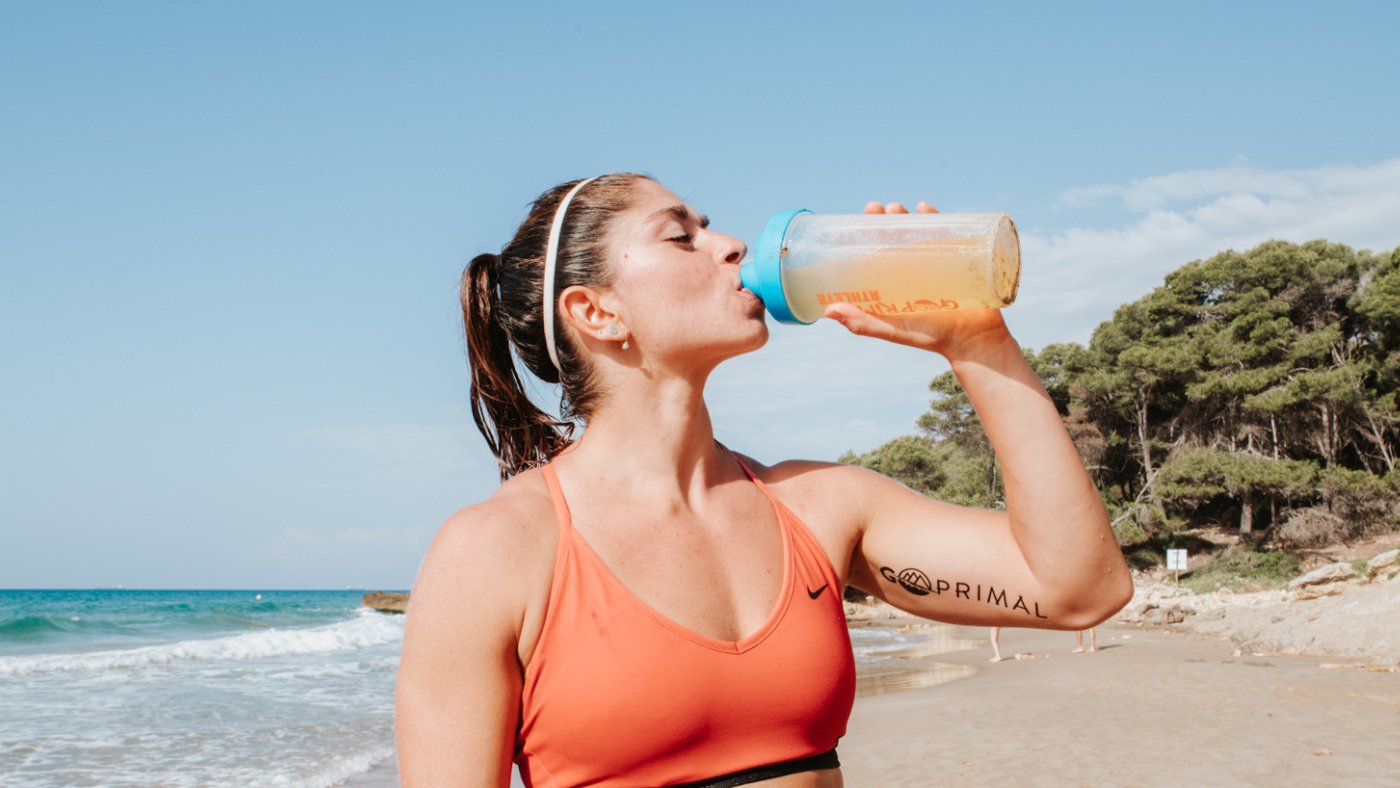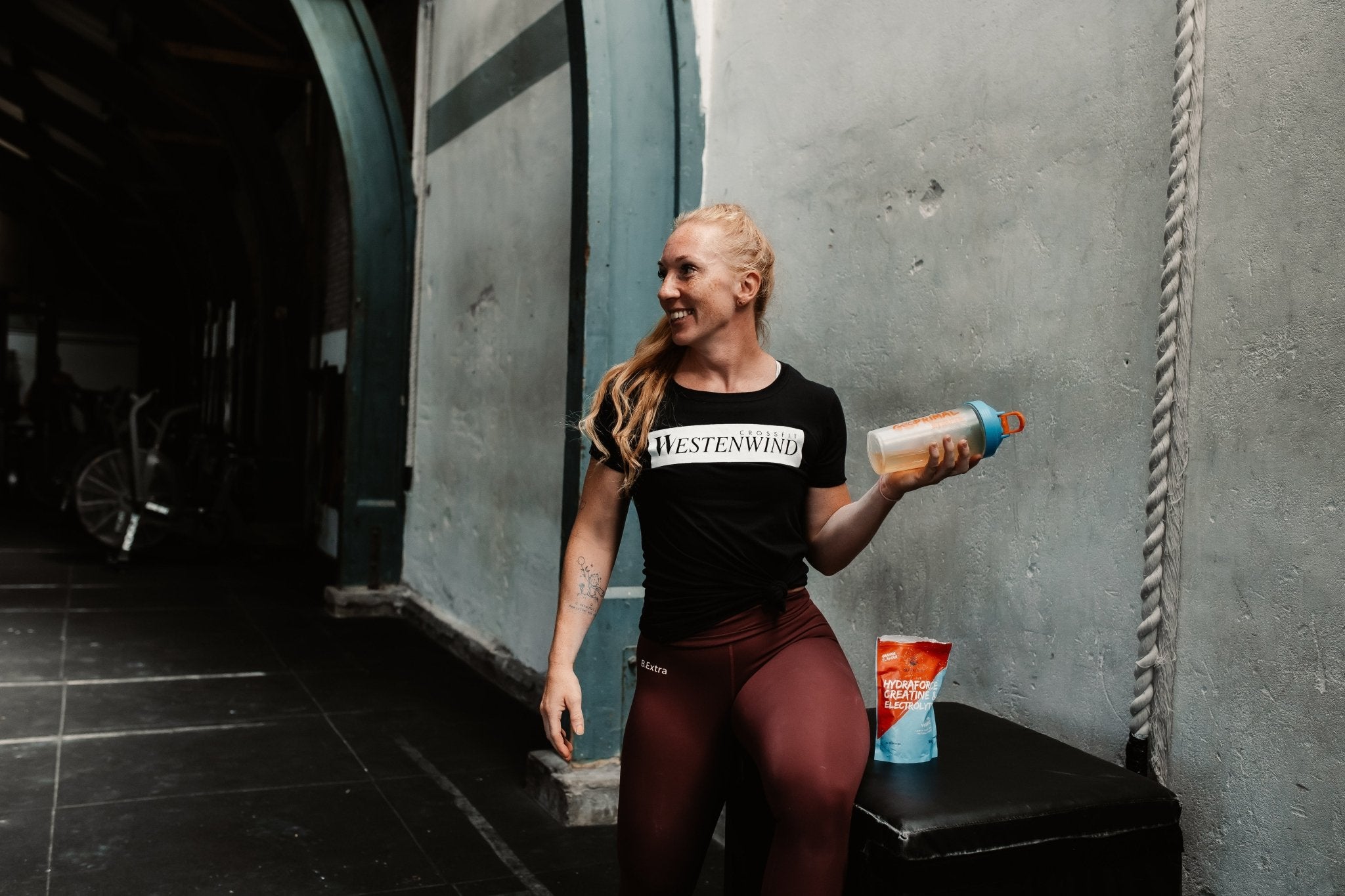
Electrolytes: Why Water Alone is not Enough to Prevent Dehydration
Dehydration while working out is a common issue, especially during the summer months, when we lose essential salts and minerals through sweat. Merely drinking water is not enough to combat dehydration and its adverse effects on our bodies. This article highlights the significance of electrolytes, explains the consequences of inadequate fluid intake, and offers practical solutions for optimal hydration during exercise.
Why Water only is not always enough
When we exercise, our bodies undergo various physiological changes to meet the increased demand for energy. As we exert ourselves, our muscles generate heat, which needs to be dissipated to maintain a stable body temperature. To cool down, our body activates its natural cooling mechanism: sweating.
When we sweat, water and electrolytes are released from our body through the skin. Electrolytes, such as sodium, potassium, and magnesium, are essential for maintaining proper fluid balance and supporting various bodily functions. However, water alone does not contain an adequate amount of these electrolytes.
By drinking only water during exercise, we may hydrate our bodies to some extent, but we fail to replenish the electrolytes that are lost through sweat. This can lead to an imbalance in our fluid-electrolyte levels, potentially resulting in dehydration.
Understanding Electrolytes
Electrolytes such as sodium, potassium, and magnesium play a critical role in fluid balance, nerve transmission, muscle function, and maintaining overall hydration levels. Thus, incorporating electrolyte-rich beverages or sports drinks is beneficial for replenishing both fluids and vital minerals lost during physical exertion. By ensuring an appropriate balance of water and electrolytes, individuals can optimize hydration and support their body's ability to perform at its best while minimizing the risk of dehydration-related complications.
Let’s go a bit more in detail on what the single electrolytes do to the body:
- Sodium: Helps maintain fluid balance, regulates blood pressure, aids in nerve function, muscle contraction, and nutrient absorption in the intestines.
- Potassium: Essential for proper muscle function, including the contraction of the heart, maintains fluid balance, supports nerve transmission, and helps regulate blood pressure.
- Magnesium: Involved in over 300 biochemical reactions, including muscle and nerve function, protein synthesis, energy production, and maintaining strong bones and teeth.
- Chloride: Works alongside sodium to maintain fluid balance, aids in proper digestion, and helps produce stomach acid.
The Fluid-Electrolyte Balance
Maintaining a proper fluid-electrolyte balance is crucial for optimal hydration and overall health. The body requires a specific amount of electrolytes to function effectively. The recommended daily intake for electrolytes varies, but a general guideline suggests consuming around 2,300-2,400 mg of sodium, 2,500-3,000 mg of potassium, and 400-420 mg of magnesium. These values can vary depending on factors such as age, sex, activity level, and individual health needs.
Interesting facts about the fluid-electrolyte balance include
Electrolyte Transport: Electrolytes are absorbed and transported throughout the body via the bloodstream. They move between cells and bodily fluids, ensuring the proper functioning of cells and maintaining the body's fluid balance.
Electrolyte Loss: Electrolytes are lost through various processes, such as sweating, urine production, and gastrointestinal functions. During intense physical activity or exposure to hot temperatures, the loss of electrolytes increases significantly.
Renal Regulation: The kidneys play a vital role in maintaining the body's electrolyte balance. They regulate electrolyte levels by filtering and reabsorbing them as needed, ensuring a balance between excretion and retention.
Imbalances and Health Consequences: Imbalances in electrolyte levels can have significant health consequences. For example, low sodium levels (hyponatremia) can cause confusion, seizures, and even coma, while high levels (hypernatremia) can lead to excessive thirst, muscle twitching, and irregular heart rhythms.
Importance of Replenishment: To maintain the fluid-electrolyte balance, it is crucial to replenish electrolytes lost through sweating and other bodily functions. This can be achieved by consuming electrolyte-rich foods and beverages, including sports drinks, fruits, vegetables, and electrolyte-enhanced products.
The Impact of Dehydration
Dehydration has a profound impact on athletic performance. The negative consequences of dehydration on sports performance include:
- Body Temperature and Heart Rate Increase: When fluid levels, including water, salts, and minerals, are below normal (hypohydration), the body struggles to regulate heat, leading to increased body temperature and heart rate.
- Muscle and Mental Fatigue: Insufficient fluid intake has direct effects on the performance. When the body temperature rises due to dehydration, it results in heightened fatigue, impaired concentration, compromised motor control, and reduced decision-making abilities. This mental fatigue then contributes to a general lack of motivation for physical activity.
- Slowed Body Functions: Gastric emptying may slow down, causing discomfort in the stomach and intestines. Additionally, dehydration negatively affects performance, especially in hot conditions.
Choosing the Right Hydration Solution
To effectively prevent dehydration, it is essential to consider electrolyte-rich hydration solutions. Sports drinks and electrolyte-enhanced beverages like our HydraForce or Carbs & Electrolytes provide a balanced combination of electrolytes and mixed with water they help replenish lost electrolytes and maintain optimal hydration levels, ensuring you perform at your best while safeguarding your health.
One serving of HydraForce (6g) includes the following vitamins and electrolytes:
- 40,5 mg (51 % NRV) Vitamin C
- 7,20 mg (45 % NRV) Niacin
- 1,1 mg (100 % NRV) Vitamin B1
- 0,60 mg (43 % NRV) Vitamin B6
- 0,60 mg (43 % NRV) Vitamin B2
- 300,18 mg Potassium
- 99,87 mg Sodium
Single Servings · Vegan · Orange Flavor · Evidence-proved dosage · Instant & delicious hydration
SHOP NOW
One serving of Carbs & Electrolytes (24g) includes the following vitamins and electrolytes:
- 1,1 mg (100 % NRV) Vitamin B1
- 0,6 mg (43 % NRV) Vitamin B2
- 7,2 mg (45 % NRV) Vitamin B3
- 0,6 mg (43 % NRV) Vitamin B6
- 250 mg (312 % NRV) Vitamin C
- 180 mg Potassium
30 Servings · Vegan · Glazed Lime Flavour with 20gr Cluster Dextrin · 130mg Sodium · 180mg Potassium · 250mg Vitamin C
SHOP NOW
By understanding the importance of electrolytes, maintaining a proper fluid-electrolyte balance, and choosing the right hydration solutions, you can optimize your hydration levels, support your body's ability to perform at its best, and prevent the adverse effects of dehydration during exercise.
Make sure to check out also this recent blog post: "Glycogen: The Fuel for Muscles During Training and the Crucial Role of Carbohydrates, Including Cyclic Dextrin, in Performance and Recovery"






